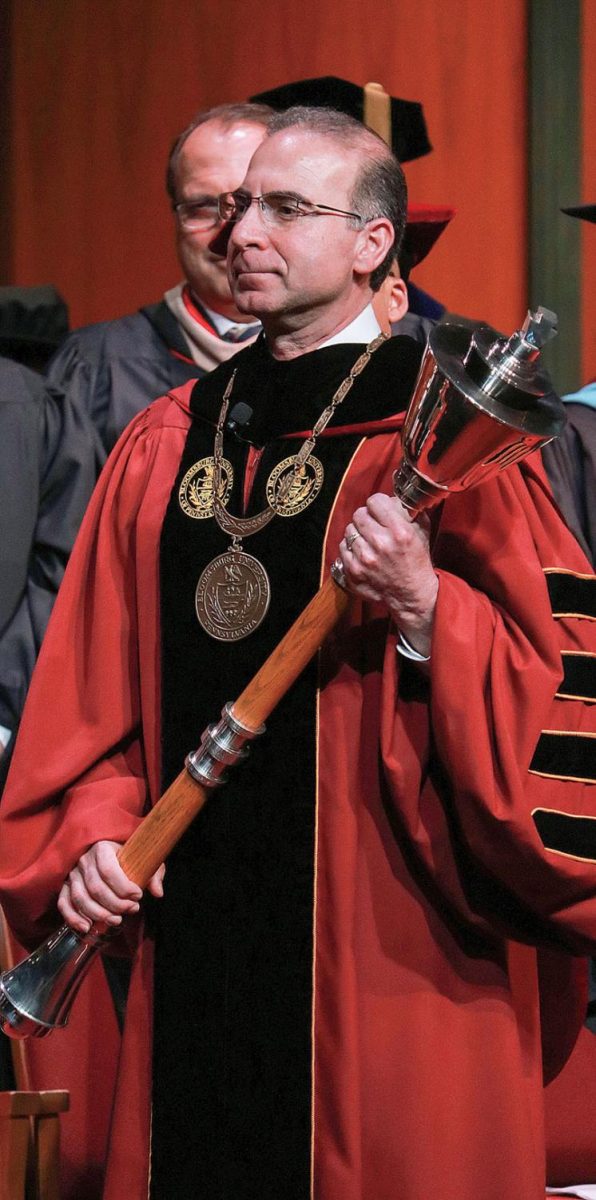Last year, while driving to a local coffee shop with a friend who just moved to PA from California, I was playing my Spotify “driving” playlist.
This playlist included quite the variety of music, but while in the middle of a several songs stretch of metal core and hardcore punk music, my friend asked, “Why do you all listen to this stuff out here? No one in California listens to this stuff!”
More recently, while scrolling through Facebook, I came to find that a popular venue for local punk, rock and metal concerts called The Champ, located in Lemoyne. Sadly, I discovered it was closing. Additionally, I came to find that another local venue was closing, called The Ground Floor.
This Williamsport venue closed its doors for the last time this past Spring. In a similar fashion, Vans’ Warped Tour has come to an end after 24 years. And popular bands, such as the notorious My Chemical Romance, have been calling it quits. So, is this the end of “The Scene?” Has the musical phenomenon been dead for a while?
When referring to the word “scene,” most think of the term “scene kids.” This term is known to encompass a plethora of fashion styles and music genres that include emo, goth, pop-punk, hardcore punk, post-hardcore, metal core, progressive metal and several others styles of music. No, it’s not all just “screamo.”
For instance, pop-punk is a sub-genre of punk rock. It is a merging of pop music and punk rock, and originated with bands like The Ramones in the late 70’s, and more recently with bands like Paramore, Blink-182 and Fall Out Boy.
Hardcore is a direct sub-genre and culture of punk rock characterized as being faster and bolder than punk, but like punk it addresses social and political issues and rejects commercialism.
Progressive metal, however, is a music genre that brings progressive rock and heavy metal together. Bands like Queensryche and Tool can be considered progressive rock. Many of these genres are often confused for one another, and clumped into the same scene, but fans often listen to more than one strict type, anyway.
So, in my search for some answers, I spoke with my friend and lead singer of the local progressive metal band, Renovare. Nicole Galbraith, a member of the band, spoke with me about this issue. She believes that the music scene cycles.
“When the alternative/goth/punk [appearance], whatever you want to call the ‘look’ that is in, we always see a rise in traffic through the music scene. It’s cool for some people to explore different styles and with that comes some people who either play the part or end up realizing that is their part.”
“Rap/hip-hop does the same thing. When it’s cool, its influence is higher. When it’s not, you see people who leave and people who stay,” says Galbraith.
Younger generations are listening to rap and hip-hop, while the generations who listened to punk rock and metal are growing up and out of being primary concert-goers and music consumers.
Galbraith believes that ego and lack of inclusivity in the different music scenes and genres plays a part in the fluctuation, as well.
“All music is supposed to be open to creativity, emotion and influence. Being non-inclusive for the sake of being non-inclusive is so destructive,” says Galbraith. The bands of the “scene” genres are still making new music, and dedicated fans are still listening. It just may be that it is harder to come by punk and metal concerts, venues, new music and merchandise.
Not to mention that look, the look most attribute with this music style, might not be as common as it used to be. Vans’ Warped Tour ended this past Summer. This left a huge need for live music events in the genre for die-hard fans.
Warped Tour made music and artists accessible to the masses with $45 tickets for an all-day, outdoor concert event including punk, alternative, metal and some rap performers. Festivals like Firefly and Coachella, at $400 to $500 a ticket, have gained in popularity, but are much less attainable.
Even if you are able to purchase a ticket, these festivals typically only include pop, rap and hip-hop acts.
Galbraith not only performs with her band, Renovare, but she regularly books shows at many still existing local venues. Live music venues that host punk and metal bands can still be found in the area, but you may have to travel.
“The Champ is optimistic for a comeback.” says Galbraith. “Until then, [we’re] going DIY until we find a permanent location again.”
Galbraith provided a list of still existing concert venues that hold metal, punk and rock concerts. For those dedicated fans, and even those who just want to see what it’s all about, the Chameleon Club/Lizard Lounge in Lancaster is a must-see.
Same goes for the One Center Square in Easton and The Electric Factory/Voltage Lounge in Philadelphia.
Choosing whether to support live music and the musicians of these genres will determine whether the “Scene” dies or not.
















